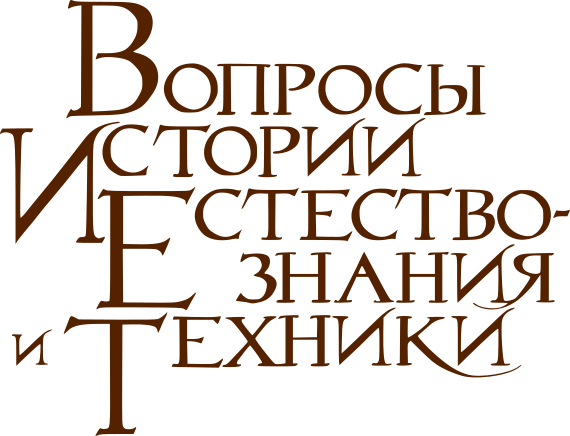"INQUISITOR DE RERUM NATURA": SOURCES OF FRANCIS BACON’S EXPERIMENTALISM
Table of contents
"INQUISITOR DE RERUM NATURA": SOURCES OF FRANCIS BACON’S EXPERIMENTALISM
References
Additional sources and materials
1. Lakatos, I. Changes in the Problem of Inductive Logic // The Problem of Inductive Logic. Proceedings of the International Colloquium in the Philosophy of Science, London, 1965 / I. Lakatos (ed.). Amsterdam: North-Holland Pub., 1968. P. 318.
2. Akhutin A. V. Istoriya printsipov fizicheskogo ehksperimenta. Ot Antichnosti do XVII veka. M.: Nauka, 1976. S. 182, 252.
3. Merchant, C. "The Violence of Impediments": Francis Bacon and the Origins of Experimentation // Isis. 2008. Vol. 99. No. 4. P. 731-760.
4. Bacon, F. The New Organon // The Works of Francis Bacon. In 15 vols. / J. Spedding, R. L. Ellis, D. D. Heath (eds.). Boston: Houghton, Mifflin and Co., n. d. Vol. 8. P. 350.
5. Bacon, F. The Great Instauration // The Works of Francis Bacon.. Vol. 8. P. 48
6. Bacon, F. Descriptio globi intellectualis // The Works of Francis Bacon.. Vol. 7. P. 288.
7. Behkon F. Velikoe vosstanovlenie nauk // Behkon F. Sochineniya. T. 1. S. 76 ("Quandoquidem natura rerum magis se prodit per vexations artis quam in libertate propria" (Bacon, F. Instauratio Magna // The Works of Francis Bacon.. Vol. 1. P. 223).
8. Bacon, F. De Interpretatione naturae sententiae XII // The Works of Francis Bacon.. Vol. 7. P. 368.
9. Behkon F. Novyj Organon. Aforizmy ob istolkovanii prirody i o tsarstve cheloveka // Behkon. Sochineniya. T. 2. S. 12.
10. Merchant, C. Death of Nature: Women, Ecology, and the Scientific Revolution. New York: Harper One, 1989. Ch. 1
11. Parry, L. A. The History of Torture in England. Montclair: Patterson Smith, 1975. P. 76-87, 162-177, 182.
12. Bacon, F. Masculine Birth of Time // Farrington, B. The Philosophy of Francis Bacon. Liverpool: Liverpool University Press, 1964. P. 63, 64, 65.
13. Merchant, C. Francis Bacon and the ‘Vexations of Art': Experimentation as Intervention // The British Journal for the History of Science. 2013. Vol. 46. Iss. 4. P. 555.
14. Bacon, F. Essayes. Meditationes sacrae. Places of Perswasion and Disswasion (Of the Coulers of Good and Euill a Fragment). London: Printed [by John Windet] for Humfrey Hooper, and Are to Be Sold at the Blacke Beare in Chauncery Lane, 1597.
15. Bacon, F. Essaies. Religious meditations. Places of perswasion and disswasion. Seene and allowed. London: Printed [by John Windet] for Humfrey Hooper, 1598.
16. Goethe, J. W. Goethes Werke. Hamburger Ausgabe. 1. Aufl. 14 Bde. Hamburg: C. Wegner, 1960. Bd. 12.
17. Koyre, A. Etudes d’histoire de la pensee scientifique. Paris: Presses Universitaires de France, 1966. P. 7
18. Daston, L., Park, K. Wonders and the Order of Nature, 1150-1750. New York: Zone, 1998. P. 261 (the personification of nature was traditionally and invariably feminine).
19. Sargent, R.-M. From Bacon to Banks: The Vision and the Realities of Pursuing Science for the Common Good // Studies in History and Philosophy of Science. 2012. Vol. 43. No. 1. P. 83

Comments
No posts found